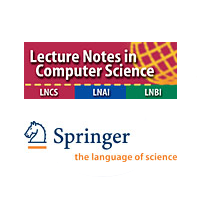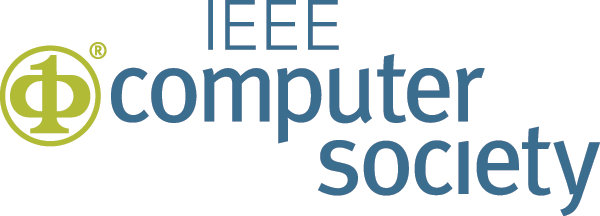Invited Talks
Włodzisław Duch "Analysis of neurodynamics for diagnosis of mental states"

Center for Modern Interdisciplinary Technologies, Nicolaus Copernicus University, Poland
Google: W. Duch, CV: http://www.is.umk.pl/~duch/cv/cv.html
Great progress has been made in recent years in methods of measurement and analysis of neuroimaging and electrophysiological data. Connectomes define anatomical organization of brain networks, and functional dynamical states selectively activate such networks to process information. Network science helps to analyze the whole-brain functional network dynamics, in some cases showing how to transform it into mental activity. Neural dynamics depends on the cognitive load and the history of brain activity, reorganizing functional networks, making the mental states context and experience-dependent.
Extracting "fingerprints" of active brain regions or subnetworks from fMRI and EEG data opens the path to many applications: reliable brain-computer interfaces, diagnostic methods in neuropsychiatry, therapeutic interventions using neuromodulation, optimization of brain processes through neurofeedback or behavioral procedures, and interpretation of some mental states. I will present several approaches to identify specific brain activity from high density EEG signals, based on spectral fingerprints, source reconstruction and localization, and functional network science analysis. There is hope that such methods may have wide applications in psychiatry, providing objective methods to characterise mental states and diagnose diseases.
Literature:
1. Duch W, Multi-level Explanations in Neuroscience I: From genes to subjective experiences.
Acta Physica Polonica B 49(12), 1981-2010, 2018
2. Finc K, Bonna K, Lewandowska M, Wolak T, Nikadon J, Dreszer J, Duch W, Kühn S. Whole-brain functional network modularity and efficiency changes related to cognitive effort. Human Brain Mapping 38(7), 3659–3674, 2017
3. Gravier A, Quek H.C, Duch W, Abdul Wahab, Gravier-Rymaszewska J. Neural network modelling of the influence of channelopathies on reflex visual attention. Cognitive Neurodynamics 10(1), 49-72, 2016
Adel S. Elmaghraby "Spatio-temporal Analytics of Health Topics in Social Networks"

Speed School of Engineering, University of Louisville, USA
Professor Adel S. Elmaghraby is the Director of Industrial Research and Innovation and Chair of the Computer Engineering and Computer Science Department at the Speed School of Engineering - University of Louisville. He has also held appointments at the Software Engineering Institute - Carnegie-Mellon University, and the University of Wisconsin-Madison. He advised over 60 master’s graduates and 25 doctoral graduates. His research contributions and consulting spans the areas of Intelligent Multimedia Systems, Neural Networks, PDCS, Visualization, and Simulation. His research applications include Smart Cities, Data Analytics, Medical Imaging, Bioinformatics, and Computer-Aided Diagnostics. He is a well-published author, a public speaker, member of editorial boards, and technical reviewer. He was recognized for his achievements by several professional organizations including a Golden Core Membership Award by the IEEE Computer Society at the 50Th anniversary celebration. Dr. Elmaghraby continued collaborations, mentoring, and scientific contributions have resulted in research funding, international collaboration, and published articles in many prestigious journals such as IEEE-TMI, Medical Physics, Journal of Neuroscience Methods, and Protein Engineering. He has also been an active member of the IEEE-CS Technical Activities Board and chair of the emerging technologies initiatives.
In this talk, I would cover the value of tracking social network interactions, in particular tweeter, for various health-related topics. This type of analysis would allow us to recognize the perception of tweeter users in various locations while tracking changes over time. This work is part of a larger project to have multi-lingual analysis and to integrate health perception with health-related data and literature. The techniques used include NLP and ANN. A system that has been developed used a combination of unsupervised and supervised algorithms to track the trends of health-related topics in social media. The system captures the correlation of words based on the context to detect the trending topics. The supervised algorithm implemented is a Convolutional Neural Network (CNN) in conjunction with the Word2Vect model to classify and label new tweets, assigning a feedback to the topic models. Our results are compared with two state of the art techniques demonstrating an advantage that can be leveraged for further improvements.
Jacek Koronacki "Empirical Model Building with Monte Carlo Feature Selection and Interdependence Discovery"

We argue that the model-free Exploratory Data Analysis or Data Mining can be used to advantage as the first stage of a two-stage data-driven causal reasoning process. We illustrate this by example - why our Monte Carlo Feature Selection and Interdependencies Discovery algorithm is a useful tool for such two-stage approach.
Ujjwal Maulik "Unsupervised Pattern Classification in Single and Multi-objective Framework"

Jadavpur University
Kolkata - 700 032 India
https://sites.google.com/site/drujjwalmaulik/
Dr. Ujjwal Maulik is a Professor and Ex-Head in the Dept. of Comp. Sc. and Engg., Jadavpur University, Kolkata, India since 2004. He did his Masters and Ph.D. in Computer Science in 1992 and 1997 respectively. Dr. Maulik has worked in Los Alamos National Laboratory, Los Alamos, New Mexico, USA in 1997, University of New South Wales, Sydney, Australia in 1999, University of Texas at Arlington, USA in 2001, University of Maryland Baltimore County, USA in 2004, Fraunhofer Institute AiS, St. Augustin, Germany in 2005, Tsinghua University, China in 2007, University of Rome, Italy in 2008, University of Heidelberg, Germany in 2009, German Cancer Research Center (DKFZ) in 2010, 2011 and 2012, Grenoble INP, France in 2010, 2013 and 2014, ICM, Univ. of Warsaw, Poland in 2013, International Center of Theoretical Physics (ICTP), Trieste, Italy in 2014, 2017 and 2018, University of Padova in 2014 and 2016, Corvinus University Budapest, Hungary, 2015 and 2016, University of Ljubljana, Slovenia, 2015 and 2017 and Middle East Technological University (METU), Ankara, Turkey in 2017. He has also visited many Institutes/Universities around the world for invited lectures and collaborative research. Dr. Maulik is a co-author of 7 books and more than 300 research publications including the journals from Nature group, IEEE and ACM Transactions and Elsevier. He is the recipient of Govt. of India BOYSCAST fellowship in 2001, Alexander Von Humboldt Fellowship for Experienced Researchers in 2010, 2011 and 2012 and Senior Associate of ICTP, Italy in 2012. He coordinators five Erasmus Mundus Mobility with Asia (EMMA) programs (European-Asian mobility program). Dr. Maulik has been the Program Chair, Tutorial Chair and Member of the program committee of many international conferences and workshops. He was the Associate Editors of "IEEE Transaction on Fuzzy Systems" and currently the Associate Editors of "Information Sciences", "Sadhana" and "Metaheuristic". He is also in the editorial board of many journals including "Protein & Peptide Letters". He has served as guest co-editors of special issues of journals including "IEEE Transaction on Evolutionary Computation", "Applied Soft Computing", "Algorithms for Molecular Biology" and "Pattern Recognition Letter". He is the founder Member of IEEE Computational Intelligence Society (CIS) Chapter, Kolkata section and has worked as the Chair in 2013, 2014 as well as 2016. He is a Fellow of International Association of Pattern Recognition (IAPR), Indian National Academy of Engineering (INAE), West Bengal Association of Science and Technology (WAST), Institution of Engineering and Telecommunication Engineers (IETE) and Institution of Engineers (IE). His research interests include Pattern Recognition and Data Science, Machine Learning and Computational Intelligence, Computational Biology, Combinatorial Optimization and Social Network.
Data clustering is a popular unsupervised pattern classification technique that is used for partitioning a given data set into homogeneous groups based on some similarity/dissimilarity metric. There are several single objective clustering algorithms available and popular in the literature including KMean and FCM. Although both KMean and FCM are very popular algorithms, they may stuck to local optima depending on the choice of initial cluster centers. In this lecture first we will demonstrate how Metaheuristic techniques can be used to solve the problem of KMean/FCM. Result will be demonstrated for pixel classification of satellite images.
In the second part of the lecture we will discuss more on Multiobjective clustering, in which multiple objective functions are simultaneously optimized. Selecting one solution from the set of Pareto Optimal solutions is always a critical issue. We will also discuss how machine learning techniques like Support Vector Machine (SVM) can be used to combine the Pareto Optimal solutions to evolve a better solution. The result will be demonstrated for classification of Micro Array Gene Expression Data.
Zbigniew Michalewicz "AI-based business applications for transforming data into decisions"

Zbigniew Michalewicz received the Master of Science degree from the Technical University of Warsaw, Warsaw, Poland, in 1974; the Ph.D. degree from the Institute of Computer Science, Polish Academy of Sciences, Warsaw, in 1981, and the D.Sc. degree in Computer Science from the Polish Academy of Science in 1997. He is currently Emeritus Professor of Computer Science at the University of Adelaide, Australia. He is also a Professor with the Institute of Computer Science, Polish Academy of Sciences, the Polish-Japanese Institute of Information Technology, Warsaw, and the State Key Laboratory of Software Engineering, Wuhan University, Wuhan, China. He is also associated with the Structural Complexity Laboratory, Seoul National University, South Korea. Zbigniew Michalewicz is the Chief Scientific Officer at Complexica (www.complexica.com), a leading provider of software applications that harness the power of Artificial Intelligence and big data to improve the effectiveness of sales & marketing activities. For many years his research interests were in the field of evolutionary computation. He published several books, including a monograph Genetic Algorithms + Data Structures = Evolution Programs (3 editions, a few translations, over 20,000 citations, source: Google Scholar), and over 300 technical papers in journals and conference proceedings that are cited widely (50,000 citations, source: Google Scholar). Other books include Adaptive Business Intelligence and How to Solve It: Modern Heuristics (both published by Springer, Berlin, 2006 and 2004, respectively), Puzzle-based Learning (Hybrid Publishers, Melbourne, 2008), Winning Credibility: A Guide for Building a Business from Rags to Riches (Hybrid Publishers, Melbourne, 2007), where he described his business experiences over the last years.
Zbigniew Michalewicz was one of the editors-in-chief of the Handbook of Evolutionary Computation and the general chairman of the First IEEE International Conference on Evolutionary Computation held in Orlando, June 1994. In December 2013 Zbigniew was awarded (by the President of Poland, Mr. Bronislaw Komorowski) the Order of the Rebirth of Polish Polonia Restituta – the second highest Polish state decoration civilian for outstanding achievements in the field of education, science, sports, culture, arts, economy, national defence, social activities, the civil service and the development of good relations with other countries.
The talk would cover a few AI-based business applications for transforming data into decisions, based on work done for three companies (NuTech Solutions, SolveIT Software, and Complexica) over the last 20 years. A few general concepts (Adaptive Business Intelligence, Travelling Thief Problem, Larry – the Digital Analyst) would be discussed and illustrated by a few examples. The final part of the talk would present Complexica’s approach for increasing revenue, margin, and customer engagement through automated analysis.
Witold Pedrycz "From Data to Information Granules: Quantitative and Qualitative Facets of AI"

and
Systems Research Institute, Polish Academy of Sciences, Warsaw, Poland
In retrospect, over years Artificial Intelligence (AI) has exhibited facets of qualitative (symbolic) and sub-symbolic (numeric) knowledge representation, reasoning, and modeling. At the symbolic end of the spectrum of AI constructs, it becomes imperative to form symbols so that they are well aligned (grounded) with real-world experimental data and in this way become a sound abstraction and perception of the world.
In this study, we advocate that information granules, both in terms of their conceptual underpinnings and associated design constructs, offer a required environment supporting a transition from data to a collection of symbols and delivering a required level of abstraction.
The overall functional schemed outline here can be concisely portrayed in the form
data -› structure (clusters) -› granular clusters -› granular schemes of modeling and reasoning
where a buildup of information granules supports generative and discriminative aspects of clusters regarded as generic constructs. While clustering algorithms give rise to numeric constructs (say, prototypes and partition matrices, etc.) and with this regard exhibit a long tradition, a paradigm shift becomes inevitable. We propose here an attractive alternative of symbolic (qualitative) characterization of information granules (clusters), which supports higher levels of interpretability and offers insights into aspects of conceptual stability of structural findings. It also links a level of information granularity (abstraction) with the stability of symbols and emphasizes the duality of interpretation of information granules as exhibiting their duality of symbolic (syntactic) and semantic nature. Those aspects are directly aligned with qualitative modeling and qualitative reasoning researched intensively in the AI domain. We discuss a direction of research aimed at building optimal information granules and their abilities to represent the data. It is argued that when coping with distributed environment (say, multiagent systems), information granules of higher type and higher order become of interest.
Wojciech Szpankowski "From Data to Information to Knowledge"

Wojciech Szpankowski is Saul Rosen Distinguished Professor of Computer Science at Purdue University where he teaches and conducts research in analysis of algorithms, information theory, analytic combinatorics, network science, random structures, and stability problems of distributed systems. He held several Visiting Professor/Scholar positions, including McGill University, INRIA, France, Stanford, Hewlett-Packard Labs, Universite de Versailles, University of Canterbury, New Zealand, Ecole Polytechnique, France, the Newton Institute, Cambridge, UK, ETH, Zurich, and Gdansk University of Technology, Poland. He delivered several plenary talks including at ISIT'11, WITMSE'14, CPM'15, AofA16, Knuth80'18, and SODA'19. He has been on editorial boards on many journals including IEEE Trans. Information Theory, TCS, CPC, and ACM Trans. on Algorithms. Szpankowski is a Fellow of IEEE, and the Erskine Fellow. In 2010 he received the Humboldt Research Award and in 2015 the Inaugural Arden L. Bement Jr. Award. He published two books: "Average Case Analysis of Algorithms on Sequences", John Wiley & Sons, 2001, and "Analytic Pattern Matching: From DNA to Twitter", Cambridge, 2015. In 2008 he launched the interdisciplinary Institute for Science of Information, and in 2010 he became the Director of the NSF Science and Technology Center for Science of Information.
Shannon's information theory has served as a bedrock for advances in communication and storage systems over the past five decades. However, this theory does not handle well higher order structures (e.g., graphs, geometric structures), temporal aspects (e.g., real-time considerations), or semantics. We argue that these are essential aspects of data and information that underly a broad class of current and emerging data science applications. In this talk, we present some recent results on structural and temporal information. We first show how to extract temporal information in dynamic networks (arrival of nodes) from its structure (unlabeled graphs). We then proceed to establish fundamental limits on information content for some data structures, and present asymptotically optimal lossless compression algorithms achieving these limits for various graph models.
We use these examples to motivate our view on data science. Our approach brings information to the center of the theoretical foundations of information and data science. In sum, we argue that the unifying theme of data science should be the triad: from data to information to knowledge.
Dacheng Tao "AI - Transform the Future"

Prof Dacheng Tao is an Australian Laureate Fellow and the Inaugural Director of the UBTECH Sydney Artificial Intelligence Centre at University of Sydney. His research results in AI have expounded in one monograph and 500+ publications at leading journals and conferences, such as T-PAMI, T-IP, AAAI, IJCAI, CVPR, ICCV, ECCV, ICDM; and ACM SIGKDD, with several best paper awards and 30K+ citations, such as the 2017 IJCAI distinguished student paper award, the 2014 ICDM 10-year highest-impact paper award, and the 2017 IEEE Signal Processing Society Best Paper Award. He is a highly-cited researcher in both engineering and computer science. He received the 2015 Australian Scopus-Eureka Prize. He is a Fellow of the Australian Academy of Science, a Foreign Member of the Academia Europaea and a Fellow of the IEEE/AAAS/OSA/IAPR/SPIE.
Since the concept of Turing machine has been first proposed in 1936, the capability of machines to perform intelligent tasks went on growing exponentially. Artificial Intelligence (AI), as an essential accelerator, pursues the target of making machines as intelligent as human beings. It has already reformed how we live, work, learning, discover and communicate. In this talk, I will review our recent progress on AI by introducing some representative advancements from algorithms to applications, and illustrate the stairs for its realization from perceiving to learning, reasoning and behaving. To push AI from the narrow to the general, many challenges lie ahead. I will bring some examples out into the open, and shed lights on our future target. Today, we teach machines how to be intelligent as ourselves. Tomorrow, they will be our partners to step into our daily life.













